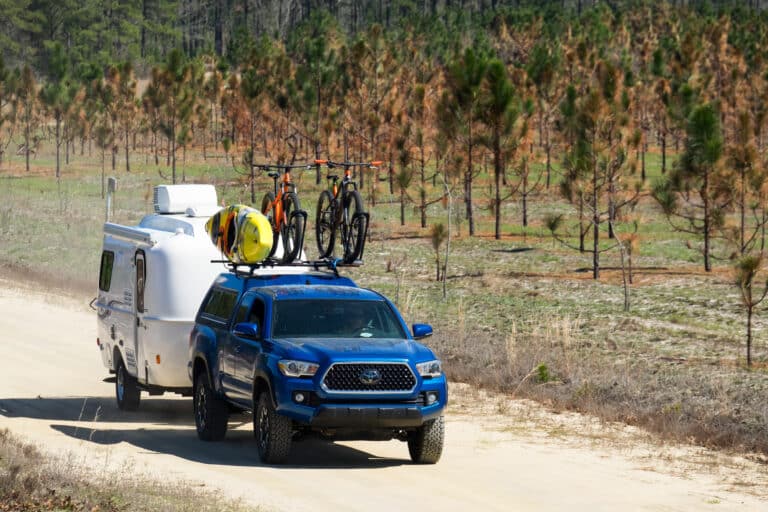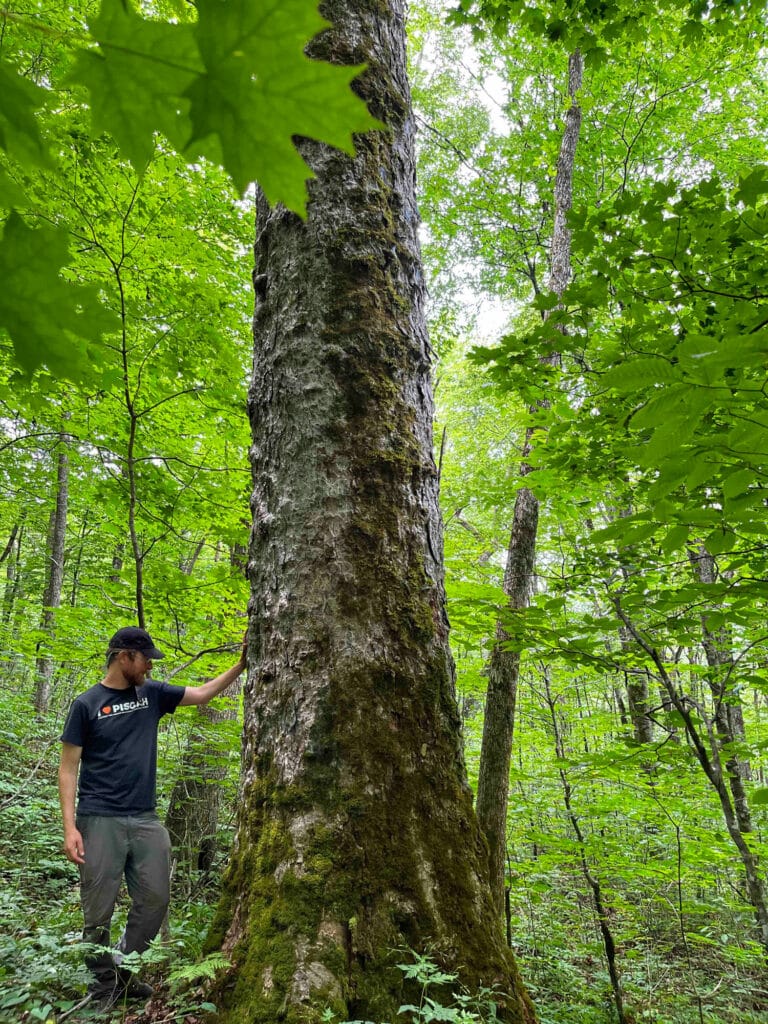UPDATED AUG 6, 2020 – 5:00PM: Lost Hiker Found on Foothills Trail
A lost hiker was found on the Foothills Trail in South Carolina’s Jocassee Gorges area.
Earlier today we reported that authorities in Oconee County were searching for a 27-year-old man from Texas who became separated from his friends while hiking the Foothills Trail near the Chattooga River. Richard Gonzalez lost his friends on the trail between Nicholson Ford and Burrells Ford, Oconee County Emergency Services said on their Facebook page.
An inexperienced hiker visiting the area from Texas, Gonzalez disappeared on Monday while hiking the 77-mile trail, and this morning a group of family and friends came together to look for him. According to Fox Carolina, emergency officials confirmed his safe recovery just before noon (hyperlink: https://www.foxcarolina.com/news/officials-search-for-missing-hiker-in-oconee-county/article_c7f76c1c-d730-11ea-89ec-57da1b0201f3.html).
Virginia teens embark on 21-mile hike to raise money for childhood cancer research
Three 14-year-old teenagers from Virginia are hitting the trail for a good cause. Lifelong friends Joseph Campione, Erik Gunderson and Lauren Allen will soon hike 21-miles through West Virginia to raise money for childhood cancer research. Campione, who has made the hike alone the past two years, is a survivor of a rare childhood cancer that still impacts him today. “During cancer, radiation stray beams hit my hip and ultimately destroyed part of it,” he told WJLA.
The friends embark on their hike August 15 and have raised $12,000 so far for Curesearch, a National Childhood Cancer Foundation. To support the teens in their fundraising effort, click here.
Study shows fighting climate change could help US avoid 4.5M early deaths
A study out of Duke University concludes that the U.S. could avoid 4.5 million premature deaths if it works to keep global temperatures from rising by more than 2 degrees Celsius, in alignment with the Paris Climate Accord, The Hill reports. The study also found that reducing climate change could prevent about 3.5 million hospitalizations and emergency room visits and 300 million lost workdays in the country.
“The avoided deaths are valued at more than $37 trillion. The avoided health care spending due to reduced hospitalizations and emergency room visits exceeds $37 billion, and the increased labor productivity is valued at more than $75 billion,” Drew Shindell, a professor at Duke, told lawmakers.
Reward offered for information on who put ‘Trump 2020’ on Asheville bear
Bear activists in Asheville, NC are furious after someone put a ‘Trump 2020’ sticker on a bear’s tracker collar. The group, “Help Asheville Bears” (HAB), is offering a $5,000 reward for information on who is responsible for putting the sticker on the bear.
“Bears are NOT Billboards!” HAB said in a Facebook post. “HAB is offering a $5,000 reward for information on the person(s) responsible for putting this political sticker on this beautiful bear who has already been trapped, tranquilized, and collared unnecessarily.”
New study warns eating protein at night can raise blood sugar the next morning
Athletes may be tempted to eat a protein-heavy dinner after an evening workout and then consume protein again after a morning workout, but research presented at The Physiological Society’s virtual conference warns that consuming protein later in the evening and then again when you wake up in the morning can result in higher blood sugar levels in the morning.
Researchers found that healthy young men and women who consumed protein in the middle of the night had significantly higher blood sugar levels after eating breakfast a few hours later than when they only had water overnight, Runner’s World reports. Though the reason for this is unclear, one theory is that the body doesn’t need or expect much food at night, so instead of using protein the way it would during the day, the body turns the protein into sugar instead.
Two North Carolina catfish state records broken in July
Catfish anglers in the Tarheel state had an impressive month after two of them caught record catfish, breaking state records. On July 5, Joey Baird of Lawrenceville, VA caught a 121-pound, 9-ounce blue catfish from Six Pound Creek at Lake Gaston. Just 15 days later, Tyler Barnes of Pikeville, NC broke the 15-year-old freshwater fish state record for a flathead catfish, reeling in a 78-pound, 14-ounce fish from the Neuse River.
To qualify for a N.C. Freshwater Fish State Record, anglers must have caught the fish by rod and reel or cane pole; have the fish weighed on a scale certified by the N.C. Department of Agriculture, witnessed by one observer; have the fish identified by a fisheries biologist from the Commission; and submit an application with a full, side-view photo of the fish.
Wednesday, August 5
Naturalists remind the public not to move rocks in waterways
Building rock cairns or flipping over stones in creeks to search for salamanders may seem like a fun way to spend the day, but naturalists want to remind the public that rock cairns aren’t art and flipping or moving rocks in waterways disturbs the habitat of aquatic creatures.
Rock stacking is of particular concern to the Hellbender salamander, which lives in silt-free mountain streams. These threatened salamanders are the largest in the United States and are nocturnal, spending most of their day hiding beneath rocks. To learn more about the Hellbender and the negative effects of rock stacking, check out this 10 minute documentary.
Runner plans nonstop endurance feat across Maine to raise money for clean water
Clean water activist and adventurer, Katie Spotz, will run through the entire state of Maine to raise funds for non-profit Lifewater International in their global mission to ensure every child has safe water. On September 5, Spotz will begin her run at the Canadian border, running south until she reaches Belfast, Maine—an anticipated 30-36 hours of non-stop running. She will be the first person ever to complete the 130-mile journey.
The distance represents 10% of the total distance someone in a village without water travels annually to access a water source that is often not clean or sanitary. “Partners like Katie make this life-changing work possible,” said Gary Weyel, Lifewater Director of Communications. “Because of her efforts, vulnerable families in very remote regions of Tanzania will have clean water, improved health, and hope for the future.”
Courthouse Creek Road on Pisgah National Forest closes temporarily
Courthouse Creek Road on North Carolina’s Pisgah National Forest is temporarily closed to motorized use until December 31, 2020. Non-motorized use is allowed. The road is closed due to active timber operations involving the use of heavy equipment and large trucks in the area. The closure helps to ensure the safety of forest visitors. Hikers and bikers are asked to be aware of increased truck traffic.
Photo: Headwaters of the Chattooga River in the dense forests of the Appalachian Mountains of Western North Carolina courtesy of Getty Images by mtilghma








